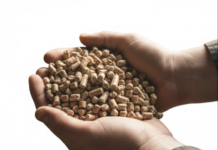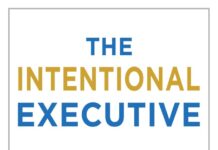(Isstories Editorial):- Saint Thomas, Virgin Islands (US) Jun 26, 2025 (Issuewire.com) – Environmental engineer and waste management consultant Roger E. Merritt Jr. is raising his voice to shift the public’s perception of waste. With nearly three decades of experience leading landfill closures, public works departments, and disaster response systems, Merritt believes our relationship with waste must change–and it starts at the curb.
“We don’t think about waste until it becomes a crisis,” Merritt said. “But every piece of trash has an impact on public health, infrastructure, and our environment.”
Having saved nearly $100 million in operational and capital costs across private and public roles, Merritt knows firsthand how strategic waste systems can improve community outcomes. As the former Executive Director of the U.S. Virgin Islands Waste Management Authority, he led response efforts during major hurricanes, coordinating with FEMA and the EPA to ensure solid waste and wastewater services remained operational.
More on Isstories:
- Mango AI’s Picture to Dance Generator Creates AI Dance Videos From Images
- CLATapult’s Individual Mentorship Program Becomes a Massive Success, Driving 25% Growth in Two Years
- What Is a Math-Based Puzzle Game Worth Playing? — Sudoku – Classic Sudoku Puzzle
- India’s 1st Rosewater Raindance Setup in Wavefire HolyWaves 2026 In Surat Gujarat
- Democrat Jamin Harkness Launches Campaign for Georgia State Senate District 7
“During natural disasters, solid waste management is as critical as electricity or clean water,” Merritt added. “It’s part of what keeps people safe.”
Despite its importance, the U.S. throws out over 292 million tons of municipal solid waste annually–more than any other country. Of that, only about 32% is recycled, according to the EPA. Landfills continue to produce methane, a greenhouse gas over 25 times more potent than carbon dioxide over a 100-year period.
“When people ask me what they can do, I tell them: start by noticing. Know where your trash goes. Separate your recycling. Compost if you can. Little decisions add up.”
Merritt also urges local governments to plan for resilience and equity. He’s currently consulting with municipalities, Latin America, and Small Island Developing Nations to design cost-effective, sustainable solutions tailored to their unique needs.
“There’s no one-size-fits-all,” Merritt said. “But the first step for any community is to treat the solid waste infrastructure as a priority, not a patchwork.”
Beyond policy, Merritt emphasizes mentorship. He’s committed to developing the next generation of environmental leaders who blend technical expertise with empathy.
“Our future depends on people who care–people willing to solve problems, even when they’re messy,” he said. “Because waste isn’t just about what we throw away. It’s about what we’re building.”
Merritt encourages individuals to take personal responsibility by:
- Learning how their local solid waste system works
- Reducing single-use plastics
- Composting food scraps
- Volunteering with community cleanups
- Supporting local sustainability policies
“You don’t need a title or a degree to make a difference,” he said. “You just need to care–and act.”
Roger E. Merritt, Jr.



















